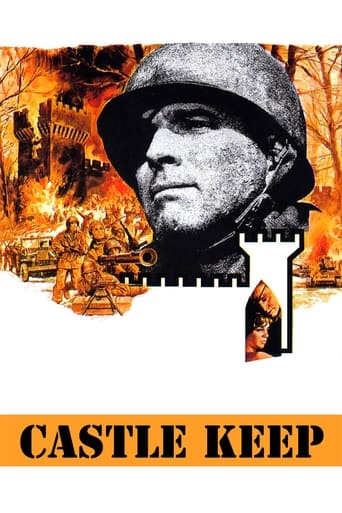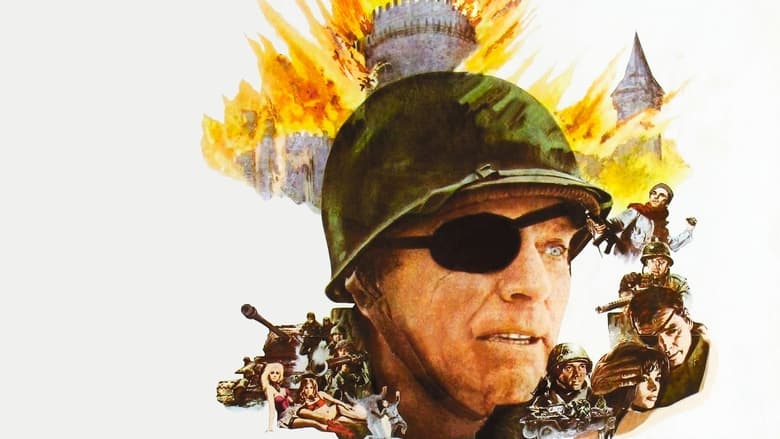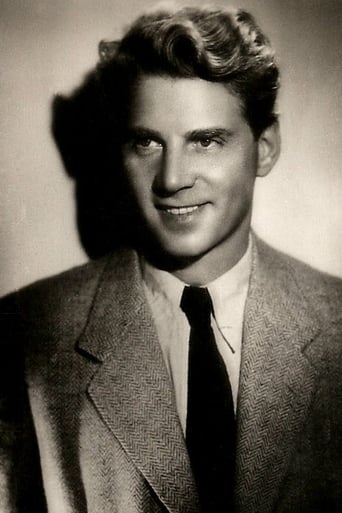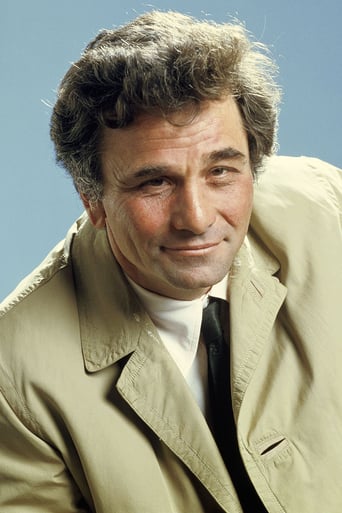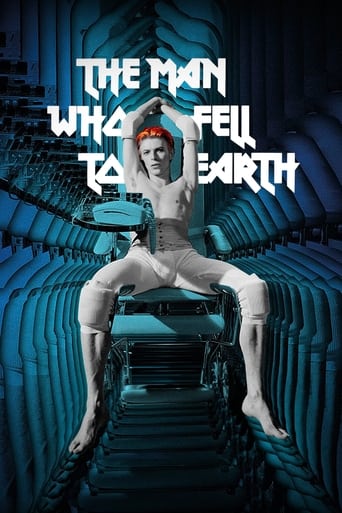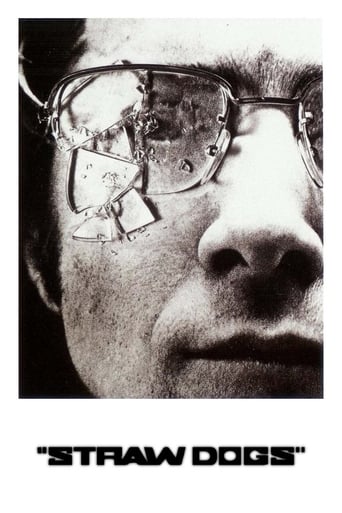Castle Keep (1969)
During the Battle of the Bulge, an anachronistic count shelters a ragtag squad of Americans in his isolated castle hoping they will defend it against the advancing Germans.
Watch Trailer
Free Trial Channels
Cast


Similar titles
Reviews
One of my all time favorites.
The movie turns out to be a little better than the average. Starting from a romantic formula often seen in the cinema, it ends in the most predictable (and somewhat bland) way.
It’s sentimental, ridiculously long and only occasionally funny
Blistering performances.
They certainly look and act as a squad except that they look more like a downed B-17 crew; so the beginning is missing some impact; The briefing, the downing, and ability to strip the bomber of gear, ammunition, and guns, after happening onto a jeep; and that's your point of taking the castle; something that Falkner curiously investigates before the mission, and most definitely a place of refuge if he managed to get there in some fouled mission gone awry. So there is the event of having the map of the area in Falkners possession, and some other details from a ranking officer about his briefing of the situation in the Ardens, before the mission as well.
If a bunch of hippies teamed up with Federico Fellini to make a WW2 film after attending an anti Vietnam war rally, it would probably look something like director Sydney Pollack's "Castle Keep".Psychedelic, surreal and zany, "Castle Keep" opens with a series of dreamy shots. Stepping into focus is Major Falconer, a gung-ho military man in charge of a small company of men. Recognising that the German Army is advancing toward a nearby town, Falconer decides to turn a medieval castle into his own private fortress; the Germans will have to destroy it and him if they wish to advance any further.Fittingly for a film released in 1969, amidst the social turmoils of then-contemporary United States, Falconer's men are a gang of Vietnam-era slackers, shirts untucked, jaded, cynical and tired of killing. Falconer, infectiously played by Burt Lancaster, is the opposite. Square-jawed and mean as hell, Falconer exists for war."Keep's" second half revolves around a series of bizarre philosophical ruminations. Falconer says he wants to preserve life, land, people and things, but everything he does brings about utter destruction. In the end, killing "the enemy", for Falconer, necessitates destroying even the things he's sworn to protect. Better the world on fire than belonging to the "enemy". Art aficionado Captain Beckman (Patrick O'Neal) argues with Falconer, pleading with him to "preserve the beauty" of the castle and its many artifacts, but Falconer ignores him. Destruction, for Falconer, is its own brand of beauty.Late in the film, it is revealed that Falconer is sleeping with the wife (Astrid Heeren) of the Count (Jean-Pierre Aumont) to whom the castle belongs. The Count allows this, as he is impotent and wishes Falconer to provide him with an heir. In this way, Falconer's brand of 20st century violence is explicitly linked to the violence of feudal Europe. Indeed Falconer, a foot-soldier of "enlightened", "democratic nations", simply preserves the barbaric seeds of the monarchists before him. WW2 was itself but an extension of 19th century Imperialism, even a bogeyman like Hitler merely replicating what European and Western colonialists had, were and still are doing in America, Africa, Asia and Oceania. More importantly, Falconer's cosying up to aristocracy echoes the past 200 years of history, in which every supposed "enlightened" superpower has sided with, funded, armed or put in power monarchs, dictators or terrorist cells, from Vietnam to Russia, Saudi Arabia to Iraq; better devils than peace.Falconer's regressive ties with the past are brought up throughout the film. "We've been here before," soldiers repeatedly state, and the idea of "eternal recurrence" is a theme which runs throughout their escapades. Elsewhere there are suggestions that our band of heroes are already dead, that their castle exits in some kind of limbo (or purgatory), and that they're merely repeating battles that have already been fought and lost. "All of us had been killed twice, sometimes three times before," one Private Benjamin outright states, "maybe that's why we were at the castle".Other surreal moments occur. Sgt Rossi (Peter Falk) states that he was a baker before he enlisted. His homecoming fantasies are realised when he seduces the widow of a local bakery. Corporal Clearboy, a mechanic in the past, likewise falls in love with a Volkswagen Beetle – an illicit affair, as it's a German machine. These love affairs mirror that of Private Amberjack, a soldier who studied music as a kid. Amberjack finds a flute which allows him to befriend a German soldier. Then there's Captain Beckman, a famous art historian who just happens to find himself in a castle containing precious works of fine art. As the film progresses, the bakery, artwork, German, flute and Volkswagen will all be destroyed. The only one who gets what he loves, seems to be Falconer."Castle Keep" echoes the counterculture-inflected war films of the 1960s and 1970s ("Catch-22", "Kelly's Heroes", "Go Tell the Spartans", "MASH", "Dirty Dozen" etc). For Pollock, war is stupid, absurd, futile and benefits only psychopaths. But whilst Pollock embraces the cynicism of his contemporaries, aesthetically his film is something else. Opening with talk of fairy tales, and sporting its own "once upon a time" narrator, Pollock constructs something dreamy, surreal and filled with odd, incongruous moments. His soldiers seem caught out of time, as though they've stepped right out of a Sam Fuller movie and into a medieval fantasy. Shot in Yugoslavia, the film features fine photography by Henri Decae.7.9/10 – Flawed, but underrated. From the mid 1950s to the 1980s, Lancaster specialised in selecting interesting material. The majority of his pictures during this period are atypical of their genre or era.
During World War II a small squad of 8 American soldiers led by Major Abraham Falconer (Burt Lancaster) relocate to a castle in Belguim. They rest there for awhile but then find themselves in the direct path of the advancing German army during the famous counter-offensive known as the "Battle of the Bulge". Rather than retreat and rejoin the main American army, Major Falconer decides to make a stand with his few men within the castle. Now, obviously the entire idea is ridiculous. But the director (Sydney Pollack) was trying to make a point about the insanity of war. The end result is a film that tries to be artistic and stylish for its time but, in my opinion, goes beyond the realm of believability. I say that because some of the scenarios are too far-fetched to be believed. For example, at one point a handful of prostitutes totally destroy a German tank with a few small Molotov cocktails. If that doesn't strain reality to the breaking point then another scenario a few minutes later features two American soldiers completely capturing another tank by firing a bazooka at it. Nevermind that a bazooka round would simply bounce off of the tank. Apparently the "message" was too important to be bothered by any sense of realism. Unfortunately, it gets even crazier when they decide to defend the castle. Only in Hollywood. Be that as it may, Burt Lancaster put on a decent performance and Astrid Heeren (as "Therese") was absolutely gorgeous. But other than that I found it difficult to get past the absurdity of it all.
This is a highly symbolic, artsy portrayal of American GIs in the Ardennes Forest, Belgium, preparing to sacrifice themselves (as so many did) in a last stand to stop Hitler's December 1944 counteroffensive. They are an exhausted, ragtag bunch of stragglers piled onto a wheezing jeep and its trailer, led with single-minded determination by Burt Lancaster's Major Falconer.They encounter an unexpected - imaginary? - castle at a strategic crossroads and settle in. The count and his castle have survived German occupation, and he does not want his world destroyed by GIs turning it into a modern war roadblock. His ally is Patrick Neal's Captain Beckman, who happens to be an authority on art and pleads with Falconer to continue their retreat so the castle and its art treasures can be spared.On the other hand, the scheming count wants his beautiful young wife impregnated for an heir and the predominating Major Falconer takes diversion from his unit and the war to do that duty, while killing a young German officer who had tried to return to see her. The girl feels used and falls in love with the hardened Falconer, turning against the count.Here I might mention a couple of historical precedents for this. We Americans bombed into rubble the abbey of Monte Cassino (with its library treasures) in Italy in 1944, although the Germans had said they were not occupying or using the abbey for military purposes. After the war it was easy to question the bombing, but to the troops on the ground there was no question the abbey should have been bombed.In the Battle of the Bulge - the Ardennes - the Waffen SS panzer divisions in the north soon met stubborn, insuperable resistance, after they had massacred a hundred American GIs at Malmedy. In the center, the regular Wehrmacht panzer divisions made greater penetration, thanks to more intelligent attacking. Leading the advance was General Eisenarsch (IronAss) Bayerlein's Panzer Lehr division.Bayerlein's friend and mentor in North Africa had been "The Desert Fox," General Ervin Johann Rommel, who had a few months before been forced by Hitler to commit suicide for supporting to whatever degree the attempt to assassinate Hitler in July 1944.Our forces were confused and dispirited and falling back in the face of the overwhelming German attack. Bayerlein had the strategic crossroads of Bastogne within easy grasp, but along toward evening encountered a U.S. Army field hospital wherein he encountered a breathtakingly beautiful, blonde American nurse. She gave him the nod, and he said to hell with Hitler and the war and spent the night with her. (After the war, she settled in the Wash DC area, and I had it on good authority from an Army historian that she retained her striking beauty all her life.) And all through that night we were rushing reinforcements like the 101st Airborne Division into Bastogne to hold it against all attacks, even when surrounded, mortally crippling 5th Panzerarmee's offensive.Knowing the above helps to understand the significance of some of the dialog in the film.While the film may seem anti-war, there was obviously no question in Jewish-American Sidney Pollack's mind that Falconer's battle - and the war against the Nazis itself - had to be fought, even if some European cultural treasures had to be sacrificed in the process. In his Wikipedia biography, Bergman's The Seventh Seal is listed as one of the films Pollack most admired, and Castle Keep's dialogs before the reckoning are similar.Note that each of the GIs is described, along with his own values and goals - even if those are just getting drunk and laid in the Red Queen.There is also the sense of virile Americans coming to the rescue of Europa, incarnated by the countess. The film is in some ways pretentious and cynical, but it strives to show the real heroism of the Ardennes reverently, nonetheless.And I agree that the battle scenes ... of the castle being stormed to nihilistic destruction by the Germans' modern weapons ... are very intense and well done ... if ultimately grim.It does remind me of 2 of the Combat! TV series: the château program with Joan Hackett as the count's daughter and the demolition - of all the beautiful statuary in the cave under the bombed out château and German observation point - program with Charles Bronson.Finally, Private Benjamin represents what Pollack may have thought was the most relevant and valuable art, chronicling the castle's last epic, and his and the countess's fate - dictated by Major Falconer - is the true climax and message of the film.Lou Coatney

